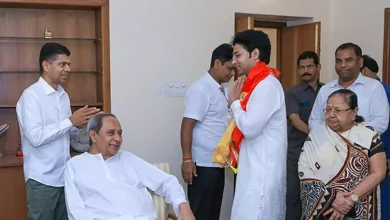Controversy Surrounds Karnataka Government’s move to collect RTI workers info
Bengaluru: The Karnataka Congress Government’s recent decision to compile and potentially blacklist information about activists who utilize the Right to Information Act (RTI) has sparked a heated debate. RTI activists, who play a crucial role in exposing government transparency, have expressed concerns about their privacy and safety. Under the provisions of the RTI Act, it is imperative to safeguard the confidentiality of those who exercise their right to access information. However, the government’s recent move to collect and possibly manipulate this data has raised serious doubts about its intentions. Critics are questioning whether the state Congress government is resorting to intimidation tactics against RTI activists. Also Read – Congress Party resorts to the Operation as it has lost its charisma: Former CM Bommai The government has been actively gathering data on individuals who frequently file RTI applications, but the reasons behind this initiative remain shrouded in mystery. This has raised questions about the government’s intentions and how it plans to use the information it has acquired. The government’s directive to compile a list of frequent RTI applicants from various departments and ministries, as well as the Chief Secretary’s Office, was prompted by a letter from the Information Commissioner of the Kalaburagi bench in April 2023. Interestingly, a similar request made during the BJP government’s tenure received no response. However, since the Congress government assumed power, it has taken proactive steps to collect information on RTI activists. Also Read – K’taka govt delegation meets Boeing, GE and IMF officials in US The Department of Personnel and Administrative Reforms has been instructed to disclose information about RTI applicants. It’s worth noting that RTI laws are designed to protect the privacy and details of applicants. Nevertheless, the government’s involvement in potentially manipulating this data has ignited a controversy. The Right to Information Act was passed by Parliament in 2005, granting every Indian citizen the right to access information from government institutions. This legislation was enacted with the primary objective of promoting transparency, accountability, and curbing corruption within government agencies. It was envisioned as a means to empower citizens by providing them with essential information about government affairs, thereby making democracy truly work for the people.





